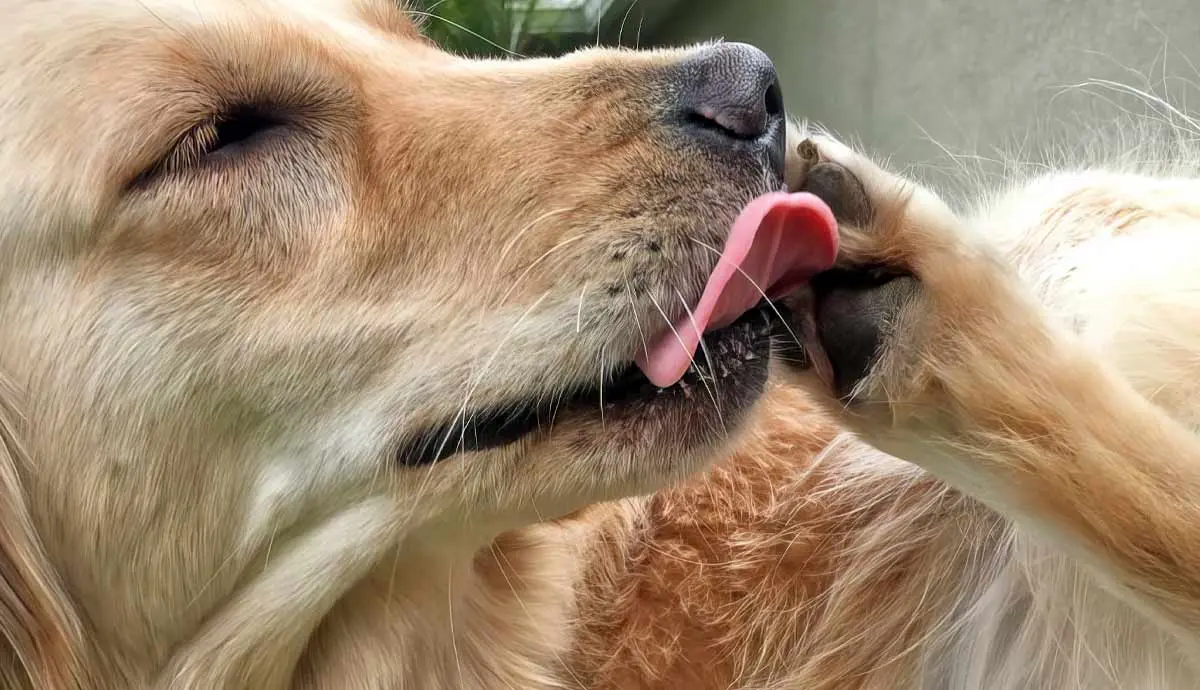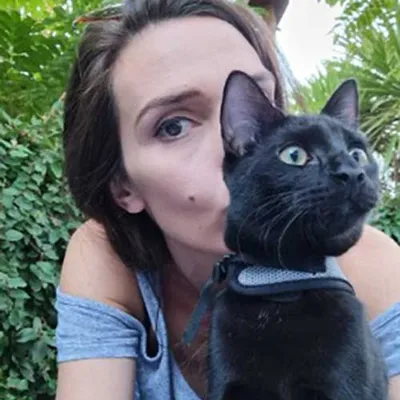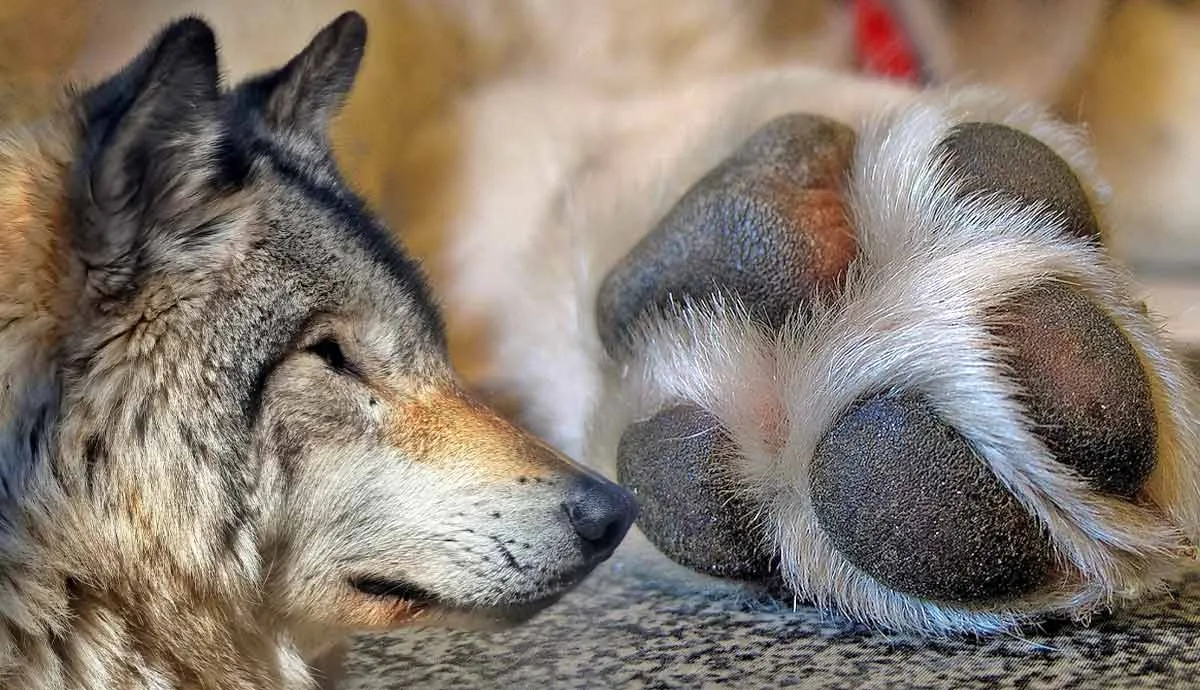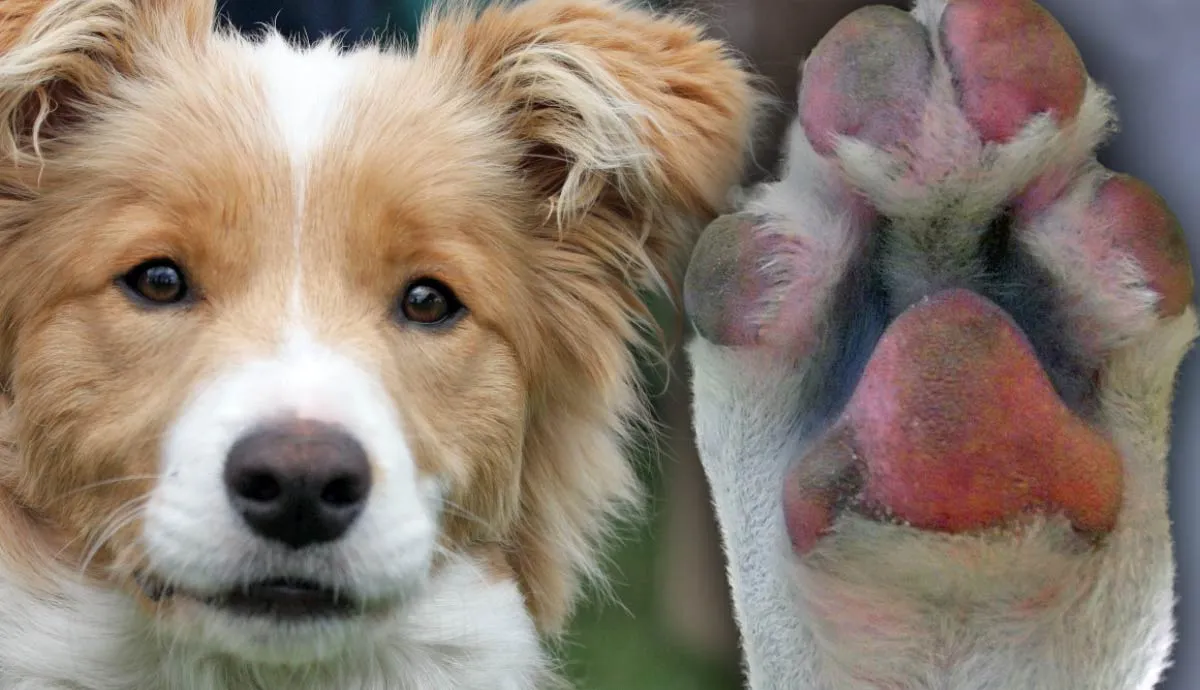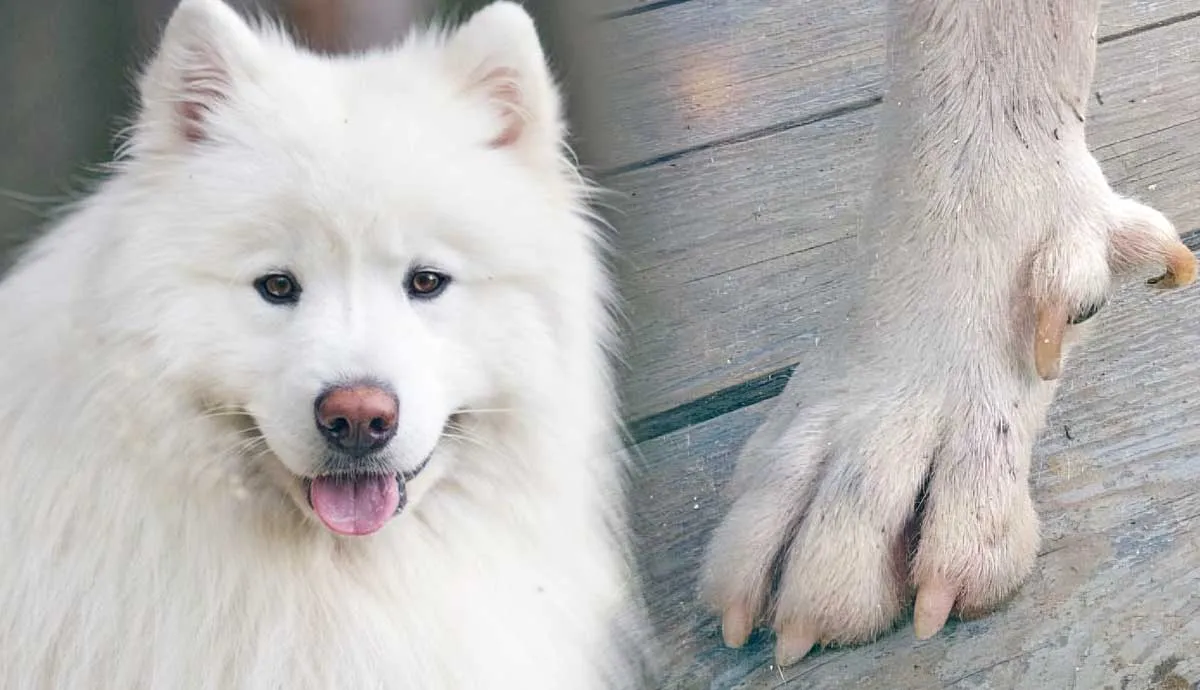Like many dog behaviors, there are several reasons why paw licking occurs, and not all represent a problem. For example, if your dog comes in from a walk on dirty or sandy ground, it is perfectly normal for them to want to lick their paws. However, if your dog's paw licking is frequent and intense with no real reason behind it, you can assume there could be a problem.
Examine the most common reasons dogs lick their paws and see which behaviors apply to your canine. Remember, if you're in any doubt about your dog's health status, the best thing to do is speak to your vet.
Dog Injury
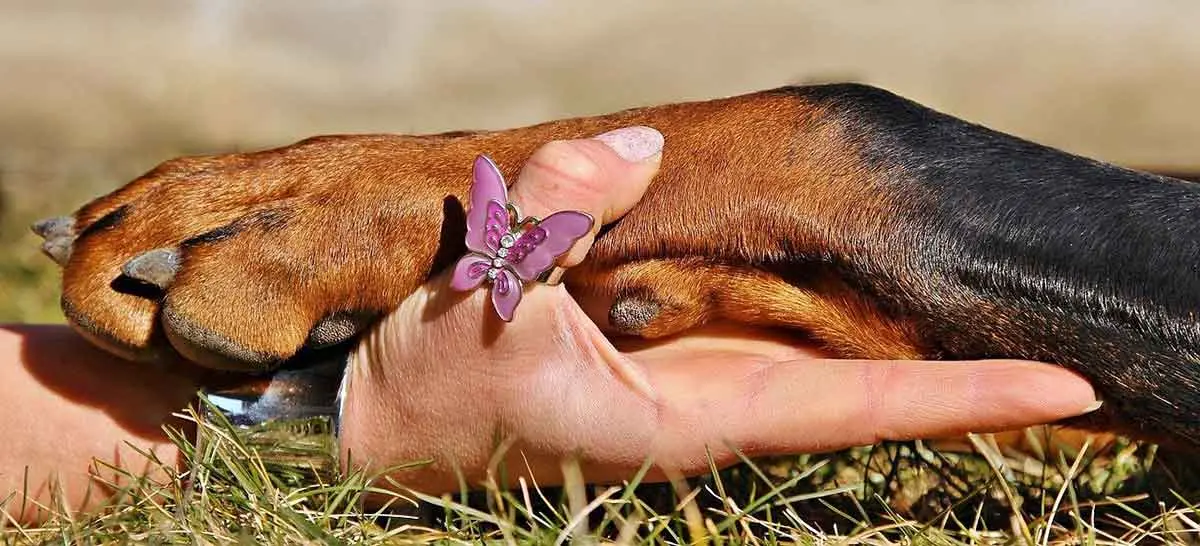
If your dog begins to lick their paws out of the blue, your first step should be to examine them for any sign of injury, particularly if their attention is focused on one foot. Pay particular attention to their nails, toes, and paw pads, looking for signs of torn nails, cuts, growths, thorns, or similar.
Common injuries can be caused by your dog irritating their paw during everyday life; walking outside could lead to a bee sting, a lesion from stepping on a sharp object, or a burn from stepping on a hot pavement. If you have a first aid kit and know what you're doing, you can treat many of these ailments at home. Still, if the injury is more severe or you don't have enough experience to treat the wound adequately, you should seek the help of a professional as soon as possible.
Paw Irritation

Skin irritation is one of the most common reasons why your dog could start to lick their paws excessively. Environmental allergies to particular weeds, grasses, or dust can cause skin irritation or dryness of your dog's paws. Other tell-tale symptoms of an allergy include puffy eyes, sneezing, or a runny nose.
If you suspect this could be the case, it's helpful to try and work out what your dog is allergic to. Do they experience a reaction after going outside and playing on the grass, or are their symptoms worse when they're inside? Identifying the allergen can help you (potentially) eliminate it from their environment or provide the appropriate treatment at least.
When dealing with allergies, your vet is an excellent place to start. They can help you identify the allergen and triggers, plus provide you with a care plan and appropriate treatments.
Canine Infection
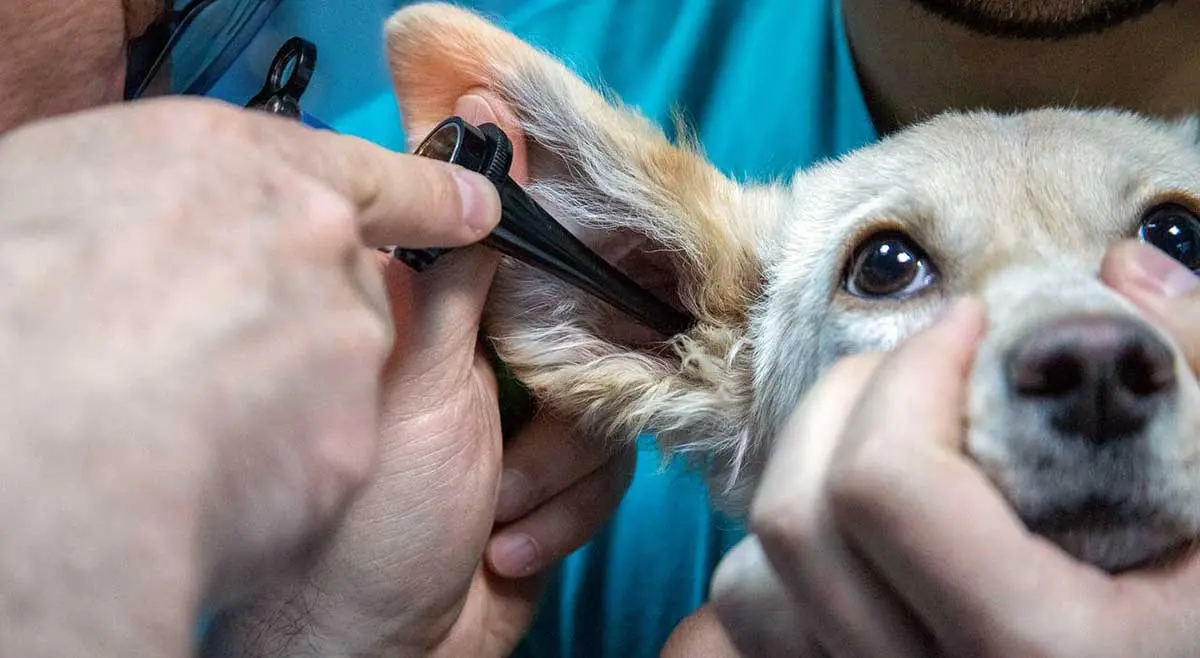
Several infections can cause damage or irritation on your dog's paws, leading to excessive licking. Bacterial infections can develop after an injury to the paw or skin; you'll often see redness or flaking around a wounded area. The best way to prevent this is to use dog wipes as part of your daily routine and make sure lesions and cuts are cleaned thoroughly.
Yeast infections cause itchiness, along with a greasy feeling and accompanying odor. To treat this, you'll need antifungal wipes and shampoos to rid your dog of the infection; if you don't know which product to use, seek advice from your vet or another licensed professional.
Ringworm is a fungal infection that your dog can easily contract through contact with infected animals or soil; the paws are one of the most common areas of detection for this infection, though your dog can experience it with no symptoms at all. Several specialized creams and shampoos can help your dog to rid itself of this condition.
You may already know the best remedies for your dog's infection, but if you're in doubt, take advice from a vet or licensed professional. Don't take advice from the internet unless you are sure it's a reliable source, as the wrong treatments can exacerbate conditions rather than make them better.
Dog Pain
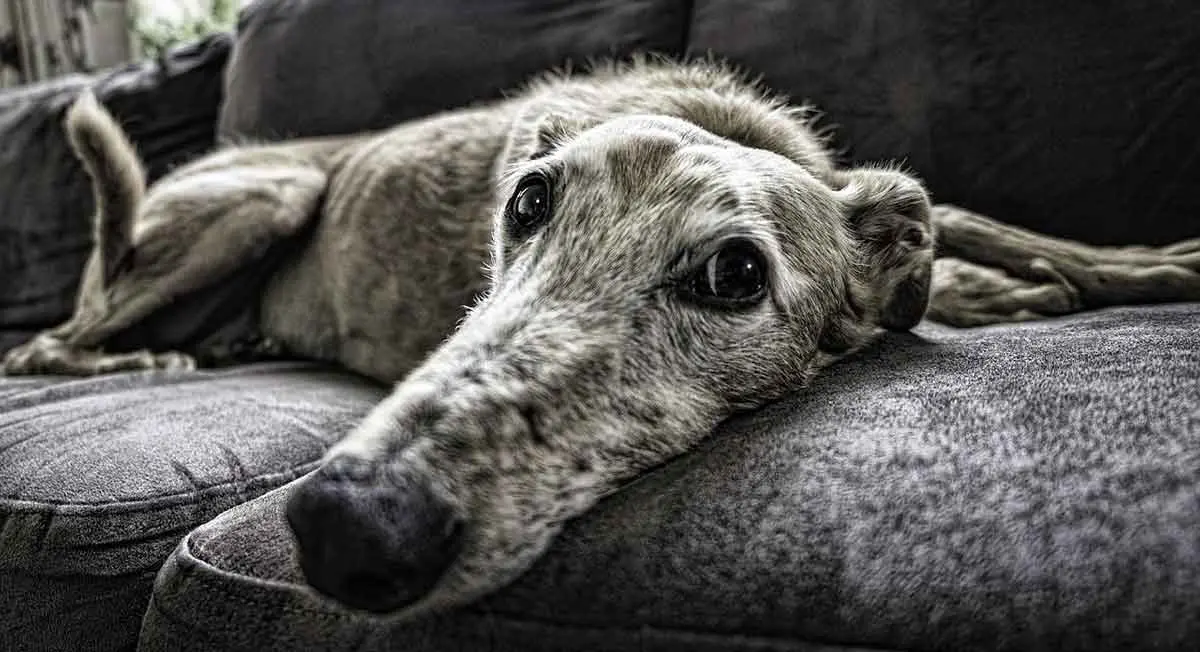
Paw licking can be a coping mechanism, not just for paw pain but for discomfort in other areas of the body too. If you can't see any apparent injuries upon inspecting your dog's paws, you may want to expand your search to look for pain-related issues throughout your dog's body. Some of the most common include arthritis, cysts, growths, and cancer; many of these are more common in older dogs.
If you have an older dog who suddenly starts licking its paws for no apparent reason, then arthritis or growths are both highly feasible motives for this behavior. In this scenario, consult your vet as soon as possible. Not only can they treat and remove any painful growths, but they can also offer prescription medications to help your dog deal with its pain.
Dog Boredom

Not all paw-licking points to injury or illness; sometimes, paw-licking is a sign of boredom or other behavioral problems. While behavioral issues are a less common cause, they still affect many dogs, including your own canine.
Paw licking is an easy behavior for dogs to start engaging in when they're bored; over time, this could develop into a habit. If you suspect this is the case or have seen their paw-licking behaviors increase over time, then you can take steps to address this behavior.
One of the best is to try distraction techniques; offer your dog puzzle toys or other forms of enrichment and provide an extra walk when you can. Do not punish or reward paw-licking because these methods are ineffective and could do more harm than good. Instead, provide increased stimulation for your canine, and if the problem behavior doesn't decrease, seek the assistance of a dog trainer or behaviorist.
